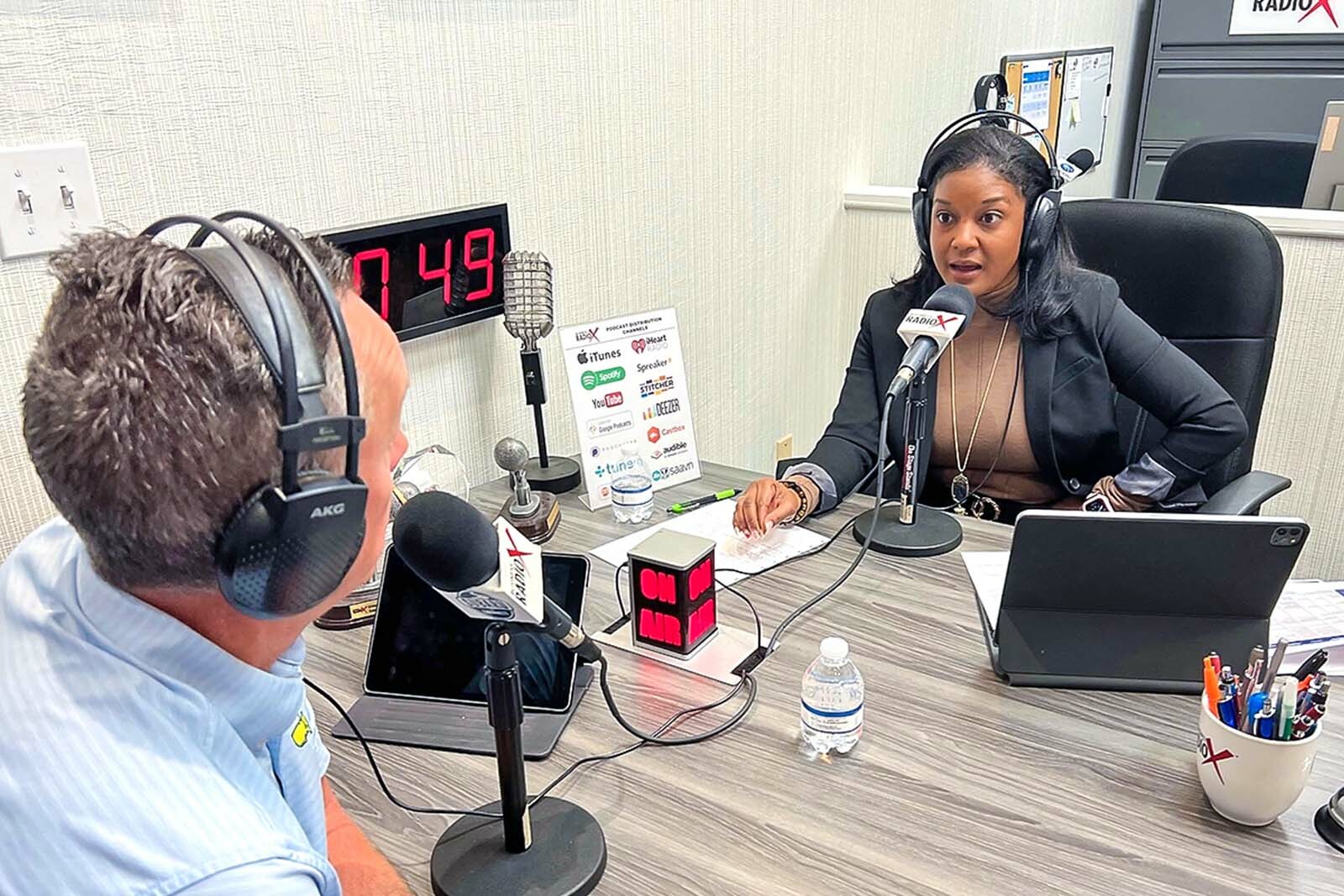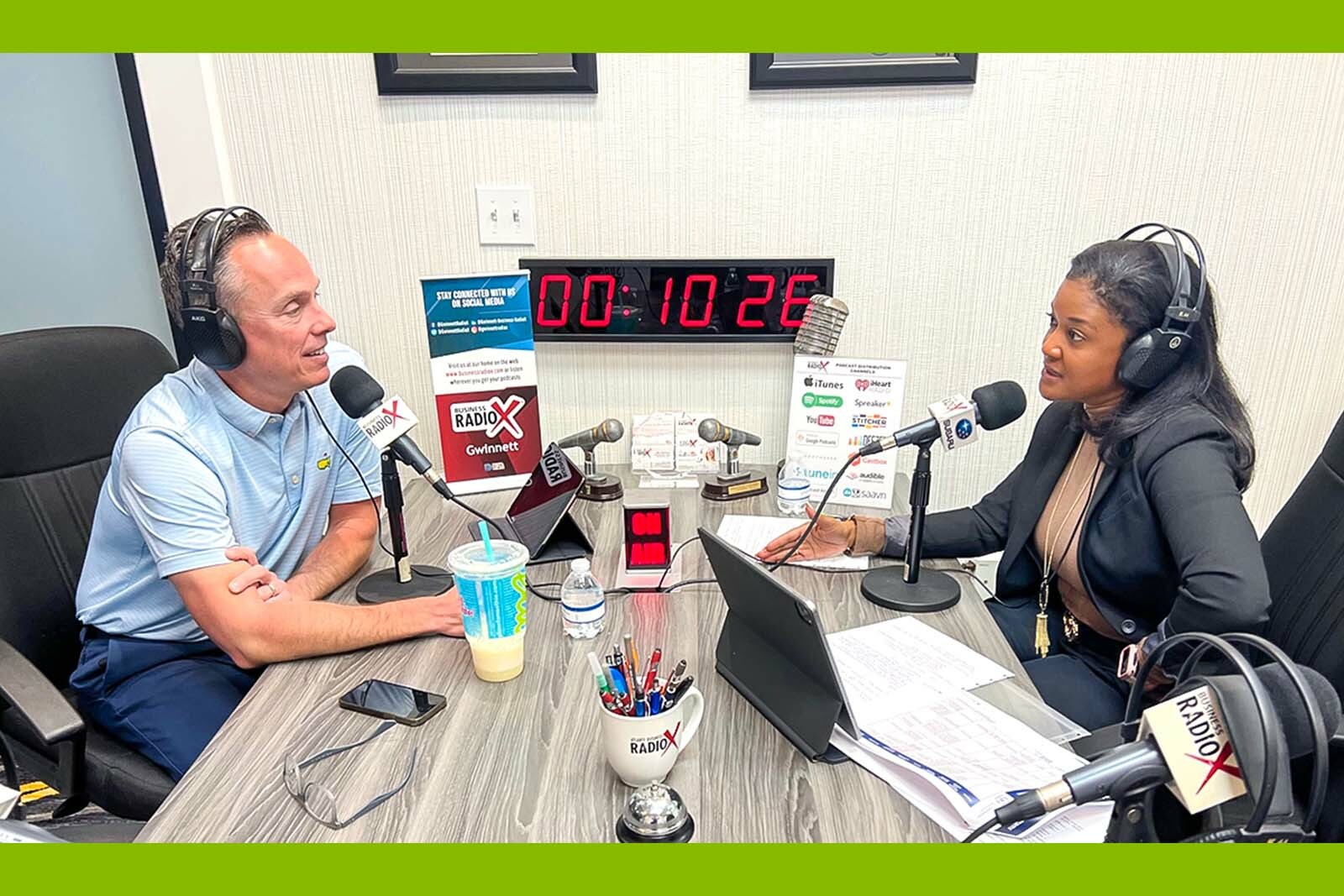In 2020, the U.S. Small Business Administration (SBA) made headlines nationwide as it stepped in to offer a lifeline to thousands of struggling business owners through the Paycheck Protection Program as a result of the COVID-19 pandemic. Though it has been around for more than 70 years, the federal agency created to help small business owners and entrepreneurs pursue the American Dream took center stage in the government-backed efforts to protect the livelihood of business owners and employees during local, state and national lockdowns.
SBA Lending at Regions
In 2021, Regions hired Caroline Taylor to lead its expanded SBA Lending team. Taylor was a recent guest on Regions Business Radio on Business RadioX in Gwinnett County, where she and host J.D. Mealor looked back at the past two years and discussed the state of SBA lending.
“COVID-19 really shed a light on the Small Business Administration, which has been around for decades, as it works with lenders to provide capital to small business owners who normally may not have had access to capital,” Taylor told Mealor. “Regions is a preferred lender with the SBA, and our teams are able to make lending decisions directly, allowing us to provide that capital quickly.”
Taylor reflected back on the Paycheck Protection Program, noting that the majority of loans had been through the forgiveness process, and the nuances of that program were quite different than the standard SBA products which do require additional documentation.
The SBA offers a suite of products, and the benefit that we add is we’re able to become a consultant. We want to get to know you and your business, not just sell a product, but to build a relationship.Caroline Taylor, head of Small Business Administration Lending at Regions
The SBA offers many different products today, with the most common being the SBA 504 loans, and SBA 7(a) loans. Regions also offers SBA Express loans, which are a loan or line of credit between $100,000 and $350,000 used for financing business acquisitions, equipment, debt refinance, working capital, inventory and leasehold improvements.
“The SBA offers a suite of products, and the benefit that we add is we’re able to become a consultant,” noted Taylor. “We want to get to know you and your business, not just sell a product, but to build a relationship.”
It’s a Relationship Business
Before they ever offer a product, Taylor’s teams ask the questions key to understanding the individual needs and goals of small-business clients.
“The first thing I do when I meet with a small business owner is dive into their why,” said Taylor. “Tell me what you’re going through right now. What are your challenges? What does your small business need? How are you looking to grow? It is through these conversations that we’re able to marry each client up with the best product within the SBA that fits.”
Taylor noted that the Paycheck Protection Program highlighted the growing capital needs among small businesses in underserved communities, those businesses with less than $150,000 in annual revenues. She explained that in 2022, the SBA processed around 47,000 loans for approximately $25 billion and 60 percent of those were small-dollar loans to help these business owners finance equipment and other needs to maintain or grow.

It’s Not Just a Loan
One common scenario within SBA Lending is that of business transitions and/or acquisitions. With the aging Baby Boomers, small businesses are trading hands and creating opportunities for growth. In 2022, Forbes reported that 40 percent of small businesses were owned by Baby Boomers, and many of those businesses won’t be passed along to the next generation who is less interested in running the family business. Then there are those who buy out the business from their family, as was the case with Primrose of Georgetown, a childcare franchise near Austin, Texas.
I find that at Regions our SBA team is really good with that advisor approach when we have an opportunity to come in and educate someone as to the options – and realities – of these generational moves.J.D. Mealor, Regions Business Radio Host
Mealor noted an active client project in his market where the father is retiring and his son, who is active in the business, is planning to step in and keep the business moving forward.
“It’s been more educational than it has been transactional for them,” Mealor explained. “I find that at Regions our SBA team is really good with that advisor approach when we have an opportunity to come in and educate someone as to the options – and realities – of these generational moves.”
The satisfaction he said is on both sides. “It is us helping them not just in doing the deal, but in this case handing off something that this father built to the next generation. And this is a great company that’s received nationwide accolades in their industry. For us and for the clients, it’s not just a loan.”
Another recent business acquisition financed by Regions is Wheelchair Accessible Transportation, LLC, whose new owners David and Missy Estridge not only kept a small business going, but found ways to expand, creating new opportunities to serve people with disabilities in ways they hadn’t imagined possible when making the acquisition.
And while Wes Benninger and his wife weren’t related to the original owners of Falls City Fence in Louisville, Kentucky, he had served as the general manager there for many years before buying the 70 year-old business in 2022.
It All Boils Down to Relationships and Culture
Mealor points out that the SBA team and the Commercial Banking team where he is a relationship manager aren’t all that different at the core.
“Whatever the problem is, if we can help them solve that, that’s what we are here for,” he said. “I think your team in the SBA world and my team in the core commercial world exhibit that regularly because of the culture that we have at Regions, which we’ve talked on this podcast many times. It is just different here – we have a very, kind culture, very kind and engaging.”

Looking for More Regions Business Radio?